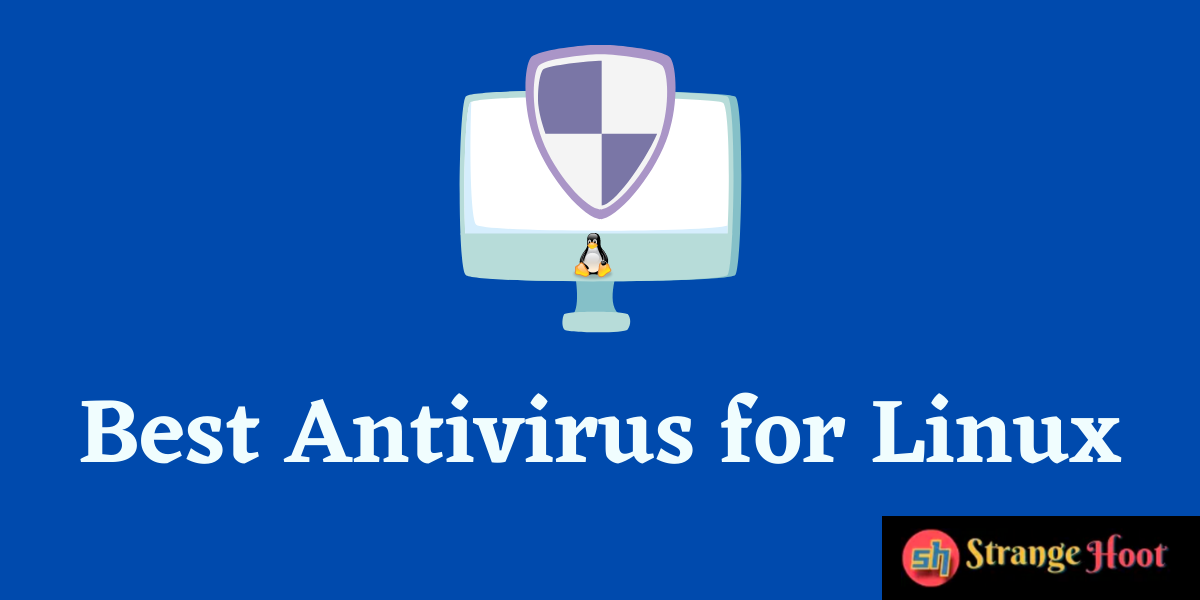Antivirus software is the requirement of today’s IT Infrastructure. Linux is mostly used by the developers for individual use and used by the system administrator team for corporate IT server setups.

Before I proceed with choosing the best antivirus tool for Linux, it needs to be evaluated what type of server is built on Linux, what type of usage, and so on. In addition to this, what is licensing structure, pricing, and features each tool provides are equally important before making the right choice.
Antivirus Tools for Linux
- ESET (Personal Use)
- Avast (File server)
- Bitdefender (Small Business)
- McAfee (Enterprise)
- Kaspersky (Medium Scale Businesses)
ESET (Personal Use)
For Linux desktops, antivirus software is hard to find. ESET is the one that is only used for desktops. It comes for all three (Windows, Mac, and Linux) platforms. Licensing cost is no different for platforms.
In case the user wants to switch from Linux to Windows, the same antivirus license can be used at no extra cost.

ESET NOD32 – Pros and Cons
Linux desktops are less vulnerable than Windows machines. The antivirus tool is easy to use and provides the below features.
- Linux operations as CLI-based. This tool comes with a Graphical UI that is easy to use.
- Periodic updates of malware database are one of the features that are useful for system protection
- Quick and easy installation of the tool on Linux desktop
- Affordable pricing and transferable license
Some limitations include:
- It comes for desktops ONLY. Server support is not available.
- Offers limited features compared to Mac and Windows
- Offers up to 10 devices subscription
- Absence of Firewall
Avast (File Servers)
File Servers are prone to spread viruses across the enterprise or office networks. Linux-based file servers can be protected by the Avast Security tool. Malware protection is the need for secured data.
Avast comes with the package of file server security, network security, and core security. Combining all of these makes the tool perfect for small, medium-scale IT setups.

Avast – Pros and Cons
If your organization’s IT setup is centralized and maintained by an IT Ops team, Avast is used to manage security from all aspects.
The features are useful such as:
- File Servers are best protected using this tool
- Periodic updates are pushed automatically
- Centralized maintenance by IT Admins
- Malware detection at an early stage
We do not call limitations of Avast, but certain points to think of before making a choice
- Consumes CPU disk usage
- No real-time protection
- Expensive in terms of pricing than other tools
- Firewall protection for selected plans
- Inability to detect behavior-based threats
Bitdefender (Small Business)
Bitdefender’s GravityZone product provides small businesses IT security from malware threats and firewall protection. Most importantly, at affordable prices.
The tool offers vulnerability assessment features by running a report of misconfiguration or issues that each computer within the network has. Proactively, the tool offers protection before any damage to network/computers occurs.

The features offered by Bitdefender are:
- It uses machine learning detection for infected processes
- Scalable solution
- Works across platforms (Linux and Windows)
- Economic pricing for small business
Some of the cons that can be taken into consideration:
- Does not support firewall protection for Linux
- No Graphical User Interface is available
- Some malware attacks are not detected by the tool
- The Linux version has limited capabilities
McAfee (Enterprise)
VirusScan Enterprise for Linux is a great tool for larger companies where they have to maintain thousands of computers located under the enterprise network. The solution is easily deployable on each machine.
The tool has capabilities to detect malicious activities on Linux systems and kill them to protect the data and systems. It uses machine learning algorithms for detecting threats.

McAfee VirusScan Linux is useful for large companies with the following advantages:
- Firewall security is available for networks that are hybrid in nature
- Scans are done on-access and real-time
- Support for thousands of computers with custom pricing
- Machine Learning techniques are used for threat detection
Looking at the limitations of the tool, you can make a choice of the antivirus solution:
- For Linux, no Graphical User Interface is available
- Supports only 64-bit Linux platforms
- Expensive for Individual and Small businesses
- For on-access scans support, kernel modules are required to be installed on Linux machines
Kaspersky (Medium Scale Businesses)
Business computer networks usually comprise all platforms. Servers are built on Linux, whereas development machines are Windows or Mac, or Linux.
When it comes to antivirus solutions, they should support hybrid networks. Kaspersky is a security solution that supports hundreds of machines in a network. It provides an easy deploy the solution to the IT Operations team.
Its anti-crypto is a powerful feature to detect ransomware. Absolutely no compromise on security.

Kaspersky’s advantages for Linux Antivirus solution are as follows:
- Provides Graphical User Interface to visualize the scans
- Affordable pricing for multi-computer network
- Ransomware protector by Anti-Cryptor
Kaspersky is not for individuals or small businesses. But, overall we cannot say it has limitations. It works the best for hybrid networks.
Choose the best antivirus for Linux
Making a choice of the best antivirus for Linux is completed based on your requirements. As an Individual, you may go for ESET NOD32. It does not require taking care of the network.
A stand-alone Linux system can be easily protected with this tool. For small businesses, McAfee, Avast, and Bitdefender are the ones to go for. Kaspersky is best for large businesses running with hybrid networks.

